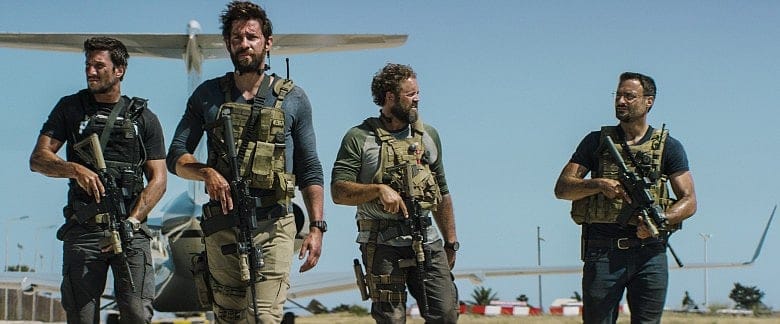‘13 Hours’ returns Benghazi to political spotlight (MOVIE REVIEW)

BOSTON –"13 Hours: The Secret Soldiers of Benghazi," the new action film from director Michael Bay, depicts the terrorist attack on the U.S. consulate in Benghazi, Libya on the night of Set. 11, 2001, which left U.S. Ambassador Chris Stevens and three other Americans dead.
Our political leaders and the politics surrounding the aftermath of the attack are largely absent from the thriller, which attempts to portray what happened from the point of view of five ex-commandos who survived the fight. But although the film purposely leaves the political ramifications aside, that hasn't prevented renewed controversy over a key contention made in the 2014 book that the movie is based on: that the Central Intelligence Agency officer in charge at the scene ordered security contractors who sought to help those in the compound to "stand down" at a crucial moment.

